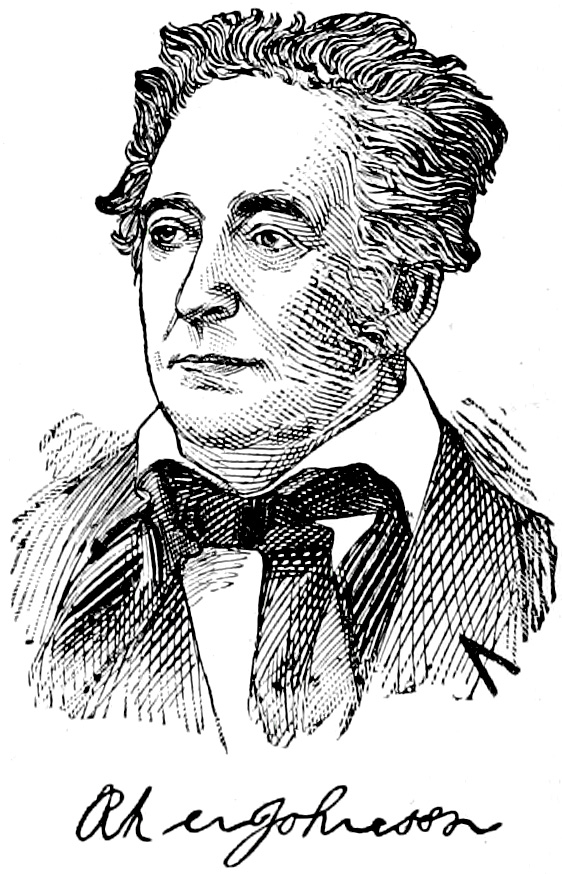Richard Mentor Johnson

JOHNSON, Richard Mentor, ninth Vice-President of the United States, was born at Bryant's Station, Ky., Oct. 17, 1781; son of Robert Johnson, pioneer. He was a student at Transylvania university, studied law under Col. George Nicholas, was admitted to the bar in 1802 and practised his profession at Great Crossings, Ky. The closing of the port of New Orleans by the Spanish intendant in 1802, in violation of an existing treaty, gave rise to great excitement, and war between Spain and the United States was threatened. Johnson, with many other young men of his neighborhood, volunteered to descend on New Orleans in the event of war. A large company was enrolled, and Johnson was put in command, but a speedy adjustment with Spain deprived them of the opportunity of serving. He was a representative in the state legislature, 1804-07, and a representative in the 10th-15th congresses, 1807-19. When hostilities were threatened between Great Britain and the United States he voted for a declaration of war, and upon the adjournment of the 12th congress, he went to Kentucky, where he raised a battalion of three companies of volunteers, which was joined to another battalion, and Colonel Johnson was given command of the regiment, in which capacity he served for ten months. He returned to Washington, resumed his seat in congress and assisted in planning the campaign for the following summer. In March, 1813, he was authorized by the secretary of war to raise a regiment of mounted volunteers to consist of one thousand men. Accordingly, he went to Kentucky and in a few weeks secured the full complement of volunteers. He was appointed colonel of the regiment and his brother James lieutenant colonel. He joined Gen. William H. Harrison on the British frontier, and took part in the engagement at Chatham, Ontario. October 4, and in the battle of the Thames, Oct. 5, 1813. Col. Richard M. Johnson, with half his men, attacked the Indians under Tecumseh, while his brother, Col. James Johnson, with the remainder of the men, fell upon and routed the British regulars under General Proctor. It was during this obstinate but successful engagement that Colonel Johnson killed, in a hand-to-hand fight, an Indian chief who formed the rallying point of the savages, and who was by some supposed to have been chief Tecumseh. Colonel Johnson was carried unconscious from the field, having received several severe bullet wounds. He resumed his seat in congress the following February and on his way to Washington was greeted with public ovations, and congress passed a resolution authorizing a suitable testimonial to be presented to him in recognition of his valuable services. In 1819, at the close of his term as representative in congress, he returned to Kentucky, where he was a representative in the state legislature until elected a member of the U.S. senate, first as successor to John J. Crittenden, deceased, and then for a full term, serving 1819-29. He was again a representative in the 21st, 22d, 23d and 24th congresses, 1829-37. He was a candidate for Vice-President of the United States on the ticket with Martin Van Buren, and was chosen Vice-President by the senate, as the electoral college gave him 147 votes and Granger, Tyler and Smith together 147 votes. At the expiration of his term of office, March 4, 1841, he retired to his home in Scott county, Ky., and was a representative in the state legislature until his death. He was the author of the law abolishing imprisonment for debt in Kentucky, and while in congress he used his influence to secure pensions for the old soldiers of the Revolution and the invalids of the war of 1812. He died in Frankfort, Ky., Nov. 19, 1850.